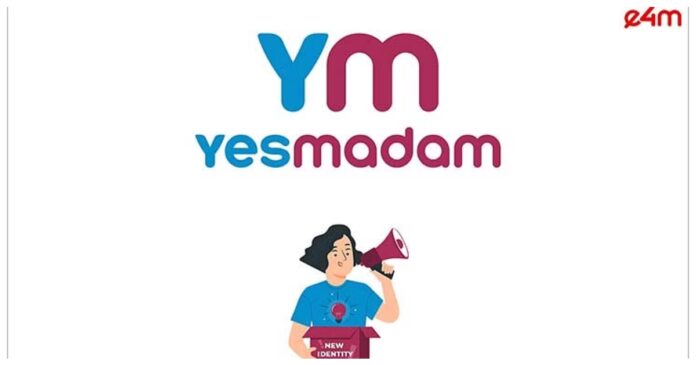They say inspiration can come from the most unexpected places and YesMadam, a Noida-based brand that claims to offer salon services at home took it very seriously. Recently, the company took a cue from Poonam Pandey’s infamous or rather irrelevant and insensitive publicity stunt. Their recent “Stress Awareness Campaign” feels like it was ripped straight from Poonam Pandey’s diary – controversial, confusing and completely missing the mark on what awareness actually means. It’s hard to believe this campaign wasn’t a deliberate attempt to create chaos. But at what cost? This “Stress Awareness Campaign” seemed more like a ”Stress-Inducing Campaign”.
/indianstartupnews/media/media_files/2024/12/09/5iDUCGcQgvTS9Jf99Kde.jpeg)
The Beginning of the Controversy
The controversy began when YesMadam’s copywriter, Anushka Dutta, shared a “leaked” HR email on LinkedIn stating her employment had been terminated due to workplace stress.
The email reads, “Dear Team, Recently, we conducted a survey to understand your feelings about stress at work. Many of you shared your concerns, which we deeply value and respect. As a company committed to fostering a healthy and supportive work environment, we have carefully considered the feedback. To ensure that no one remains stressed at work, we have made the difficult decision to part ways with employees who indicated significant stress.”
“This decision is effective immediately, and impacted employees will receive further details separately. Thank you for your contributions,” it added.
The email created a wildfire as it claimed that 100 workers, including herself, had been dismissed overnight. The post quickly gained attention and was later deleted after the company clarified its stance.
Public Reaction: When the Internet Fights Back
The internet did not hold back. People and industry professionals called out YesMadam for their poor campaign execution.
/socialsamosa/media/post_attachments/a174d917-2b3.png)
“Using a grave issue like layoffs to promote a product is as irresponsible as it is tasteless,” wrote Aparna Mukherjee, a communications executive. Others mocked the campaign’s execution, with one user commenting, “Whoever approved this stunt should fire themselves.” Keshav Bedi, a political and economic commentator, called for transparency regarding the planning process that led to the controversial campaign. He criticised the company, accusing it of engaging in damage control rather than taking responsibility for its actions.
/socialsamosa/media/post_attachments/7fafd00a-510.png)
YesMadam’s Justification: Too Little, Too Late
As criticism grew, YesMadam tried to defend themselves. They clarified that the email was circulated as part of the campaign. “No one was fired at YesMadam,“ the company stated. “We would never take such an inhuman step.” They argued that their dramatic approach was intentional and designed to grab attention in a crowded market, stating that they wanted to spark a conversation about stress.
In the same post, YesMadam announced two new employee wellness initiatives. The “Happy 2 Heal” program offers in-office head massages and spa sessions to help employees relax and de-stress. They also introduced a “de-stress leave policy,” offering six days of paid leave and a complimentary at-home spa session.
“In today’s hyper-connected world, work-life boundaries are fading, stress is widespread, and productivity often overshadows employee wellbeing… Happy employees build stronger businesses, and we’re here to lead the way in creating a culture that reflects this belief,” the company stated.
The marketing team thought their approach was “out of the box” but in reality, it’s more like they took the idea outside the box and then left it there to rot. This wasn’t “out of the box” thinking, it was out of touch, out of insensitivity and out of any connection to reality. It creates the question of who even approved it. Critics pointed out that awareness campaigns don’t need to rely on shock tactics. Other brands have addressed serious topics with empathy and still made an impact. YesMadam’s apology felt weak and didn’t address the real issue: their failure to understand how to handle sensitive topics.
Lessons to Learn (or Not?)
Let’s get one thing straight: if your campaign is causing more harm than good, your execution can’t be labelled as successful. Mental health awareness is a delicate issue and brands should approach it with sensitivity. Many successful campaigns have shown how to discuss these topics with care and respect.
Not all publicity is good publicity. While this controversy may have put the brand in the spotlight, it has also disappointed many potential customers. Trust is hard to build and easy to lose, especially in industries like wellness and beauty, where customers value authenticity.
A Campaign Better Left in the Drafts
YesMadam’s Stress Awareness Campaign will likely be remembered as an example of what not to do. It’s a reminder that sensitivity and honesty matter when dealing with important issues like mental health. Sadly, instead of sparking meaningful conversations, YesMadam has sparked memes and outrage.
Let’s hope YesMadam learns from this and does better in the future. The next time they tackle a serious topic, they’ll need more than a flashy idea—they’ll need to rebuild the trust of an audience that now sees them as opportunistic. As for their inspiration? It’s time to leave the Poonam Pandey playbook in the trash where it belongs.
Stay tuned to Brandsynario for the latest news and updates.







































